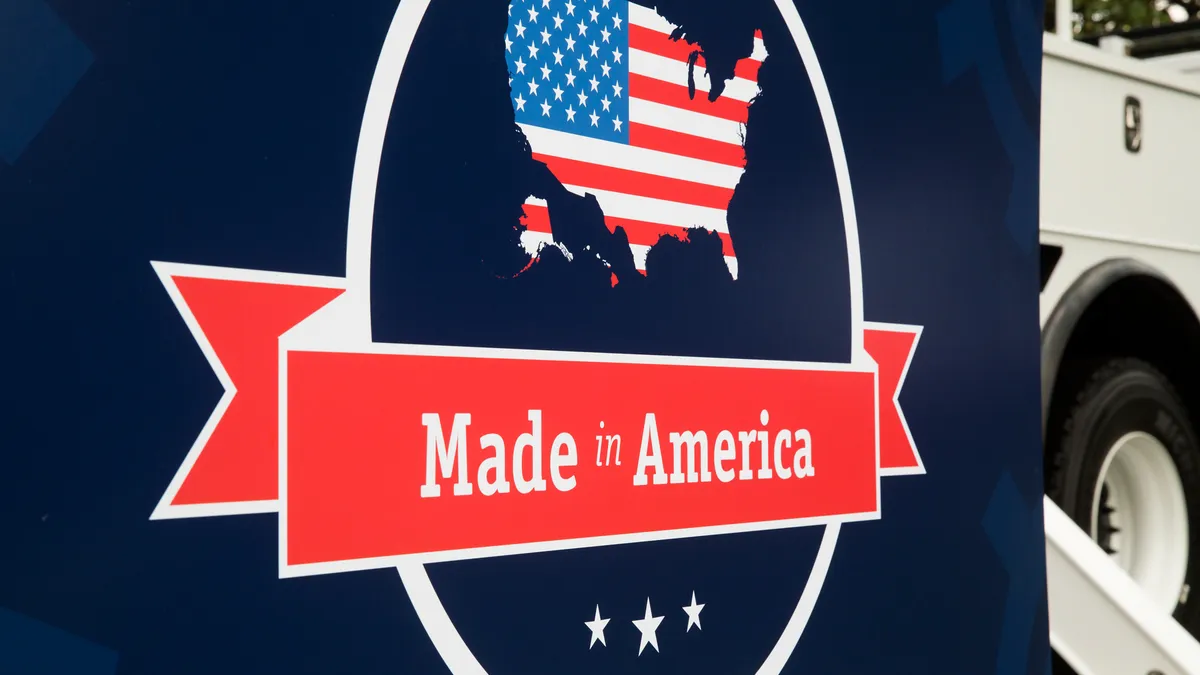Dive Brief:
- Dozens of delegates and reporters arrived in Washington, D.C. this week to prepare for the first round of negotiations to modernize the North American Free Trade Agreement, which will take place from Aug. 16 to Aug. 20, 2017.
- The three countries will arrive at the table with various, distinct priorities. Roughly 30 topics will be discussed in this first round, including traditional and "new generation" trade topics (such as e-commerce), according to a press release issued by Mexico's Economy Ministry.
- Prior to the negotiation, each country made its top priorities clear with various negotiating objectives. Generally speaking, the U.S.' main goal is to find ways to reduce its trade deficit; Mexico seeks to protect and grow market access; and Canada aims to create a more "progressive" deal with stronger labor and environmental safeguards.
Dive Insight:
The first round of negotiations will be a test on each country's resolve, as the neighbors arrive at the table with ambitious goals and seemingly competing priorities.
"Canada is and always has been a trading nation," Canada's Foreign Affairs Minister Chrystia Freeland said in her opening statement to the trilateral ministerial talks. "We pursue trade, free and fair, knowing it is not a zero-sum game." And while the country does not believe trade deficits should be a priority, she added, "It's probably worth pointing out today that our trade with the U.S. is balanced and mutually beneficial."
The statement, which directly addresses the U.S.' top priority, came moments after Freeland spoke to the audience in Spanish to state Canada's negotiating objectives. The trade deal is an opportunity to advance "new realities," with "free, just and progressive aims," such as environmental and labor protections.
Just as Freeland spoke to appease U.S. trade concerns in her statements, she had reached out to Mexico's negotiators to advance Canada's priorities. Her approach is emblematic of the challenges ahead for the three countries, which will have to align objectives to reach a trilateral deal, despite bilateral sticking points.
However, all partners agree that modernizing NAFTA presents an opportunity to reach a better deal for the hemisphere. "We will modernize NAFTA for the 21st century so that it is a win-win-win for all of our trading partners in North America,” U.S. Vice President Mike Pence said in a July speech in Rhode Island.
"But we are committed to a good deal, not just any deal," Freeland said in a speech earlier this week. "That will be our bottom line."
And that bottom line is also shared across the table, a group of panelists at a Woodrow Wilson Center Mexico Institute event previewing the talks reminded the audience on Tuesday. The panelists were comprised of a group of trade experts and former negotiators, representing Mexico and Canada's perspectives.
In fact, each country will have a red line that negotiators must tiptoe around. For Mexico, the red line is likely wages, according to Francisco de Rosenzweig, a former undersecretary for foreign trade at Mexico's Ministry of the Economy.
But knowing that Canada and the U.S. will push on that and other issues, Mexico has sought to increase its leverage by stating it could place more than just economic concerns on the table. The country's cooperation with U.S. security interests and migrant deportations may be at play if its neighbors push too hard, according to Christopher Wilson, Deputy Director of the Mexico Institute.
"We compartmentalized these issues previously to ensure that a conflict on one front wouldn't get in the way of an economic issue," Wilson said. "We're willing to, if necessary, do away with that process of decompartmentalization ... The fundamental red line is market access."
In other words, "failure is an option," according to Fred Bergsten, senior fellow and director emeritus at the Peterson Institute for International Economics.
All three neighbors have expressed hope they could reach a new deal by January 2018, but competing interests and upcoming elections may undermine these goals. After all, each country's legislative branch must still approve NAFTA 2.0, and if the negotiators cannot reach a "good deal," the talks may quickly fall apart.
The next round of negotiations will take place in Mexico, with further details to be revealed Sunday, Aug. 20. In the meantime, reports will bear witness as to whether any bridges were built during the first round.














